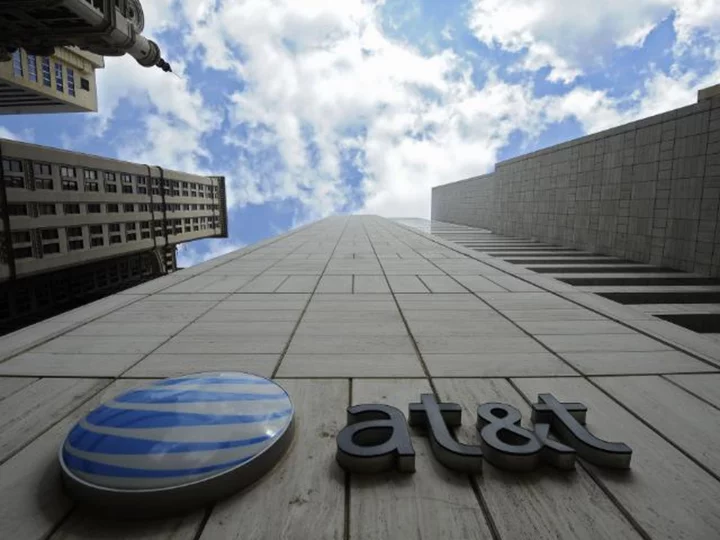AT&T stock fell to its lowest level since 1993 on Tuesday, extending its losses following a report earlier this month that some of the country's largest network providers left thousands of lead-covered cables in several locations across the United States.
The Wall Street Journal on July 9 reported that companies including Verizon and AT&T have left cables coated in lead from the Bell System's telephone network in the US's ground, water and on transmission poles.
That prompted a flurry of downgrades from analysts that in turn helped spur a steep sell-off in telecom stocks. Since the investigation's publication, AT&T shares have tumbled roughly 14%, Verizon fell 10% and Frontier Communications slid 33%.
JPMorgan Chase analysts last Friday downgraded AT&T to neutral from overweight and lowered its price target to $17 from $22, citing in part concerns that it sees "the potential liability as an unquantifiable, longterm overhang for the stock."
The carnage continued Monday as more downgrades rolled into Wall Street.
Edward Jones analyst David Heger on Monday downgraded AT&T to a hold rating from buy, flagging concerns that the investigation could limit upside in the stock and prompt legal actions against the company. AT&T shares on Tuesday fell to $13.45, its lowest closing price since 1993.
Verizon shares fell 7.5% to $31.46 on Monday to their lowest closing level since 2010 before paring back their losses slightly on Tuesday. An AT&T spokesperson told CNN in an emailed statement on Tuesday that it is conducting additional testing, including at locations mentioned in the Journal's stories.
That comes after the company said in a response to the investigation that the Journal's testing methodologies are flawed and that its reporting conflicts with the company's own testing.
"The scientific literature and reliable studies in the U.S. and abroad give no reason to believe that these cables pose a public health issue or a risk to workers when appropriate safety measures are in place," the company said.
Verizon did not immediately respond to a request for comment.
"There will be clear financial and reputational risks for telecommunication companies. Akin to the experience of environmental and litigation impacts of historical asbestos and lead paint scenarios on industry participants, this will likely play out over the months and years to follow and mark a credit negative for many in the industry," Neil Mack, vice president for Moody's Investors Service, said Tuesday.
Lawmakers have demanded action to further investigate the network of toxic lead cables in the wake of the release.
Democratic Sen. Edward Markey in a July 11 letter to Jonathan Spalter, chief executive of telecom industry group USTelecom, demanded that the organization answer how they plan to address the environmental and health issues which may be putting people at risk.
"This is corporate irresponsibility of the worst kind," Markey wrote.
USTelecom told CNN in an emailed statement on Tuesday that it is "engaging with stakeholders on this important matter."
"The U.S. telecom industry prioritizes the health and safety of our communities and workers. We have not seen, nor have regulators identified, evidence that legacy lead-sheathed telecom cables are a leading cause of lead exposure or the cause of a public health issue," the industry trade group said.

